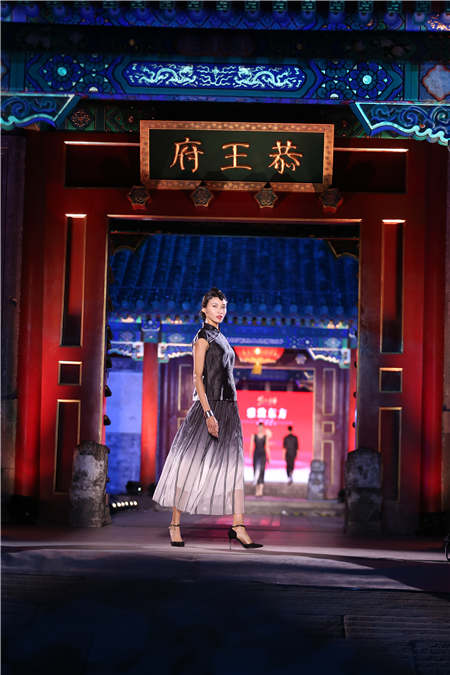 |
|
A model shows a creation of fashion brands that demonstrates how they enliven Chinese garments at a recent runway show at Prince Gong's Mansion in Beijing. [Photo by Jiang Dong/China Daily] |
Eve has also set up an alliance of local brands so that its members can benefit from the database.
The brand has also helped build a museum in Guizhou province that exhibits works by the embroiderers.
"These people (the embroiderers) are preserving heritage with their hands. I want to share their craftsmanship with the world, to let it see the beauty of our country," says Xia Hua, founder and chairwoman of the Eve Group.
Sun Xuguang, director of the Beijing Prince Gong Palace Museum says: "We hope that the events will promote ties between artisans and the textile industry."
"We want to reinterpret traditional craftsmanship with creativity and nurture brands. We also want to pay tribute to the artisans by protecting and rejuvenating our cultural heritage," he says.
The museum is an avid promoter of Chinese culture, and will hold shows every June to celebrate the country's intangible cultural heritage.
After the fashion shows, it will launch its Kunqu Opera show season to celebrate Chinese opera art.
Meanwhile, Yang Jian, deputy director of the China National Garment Association, says the textile industry should invest more to bring traditional craftsmanship into the fashion industry in terms of design, branding and manufacturing.
The Beijing Institute of Fashion Technology, the top university of fashion design in the country, has been stressing the value of traditional craftsmanship in its curriculum, says Jia Ronglin, deputy dean of the institute.